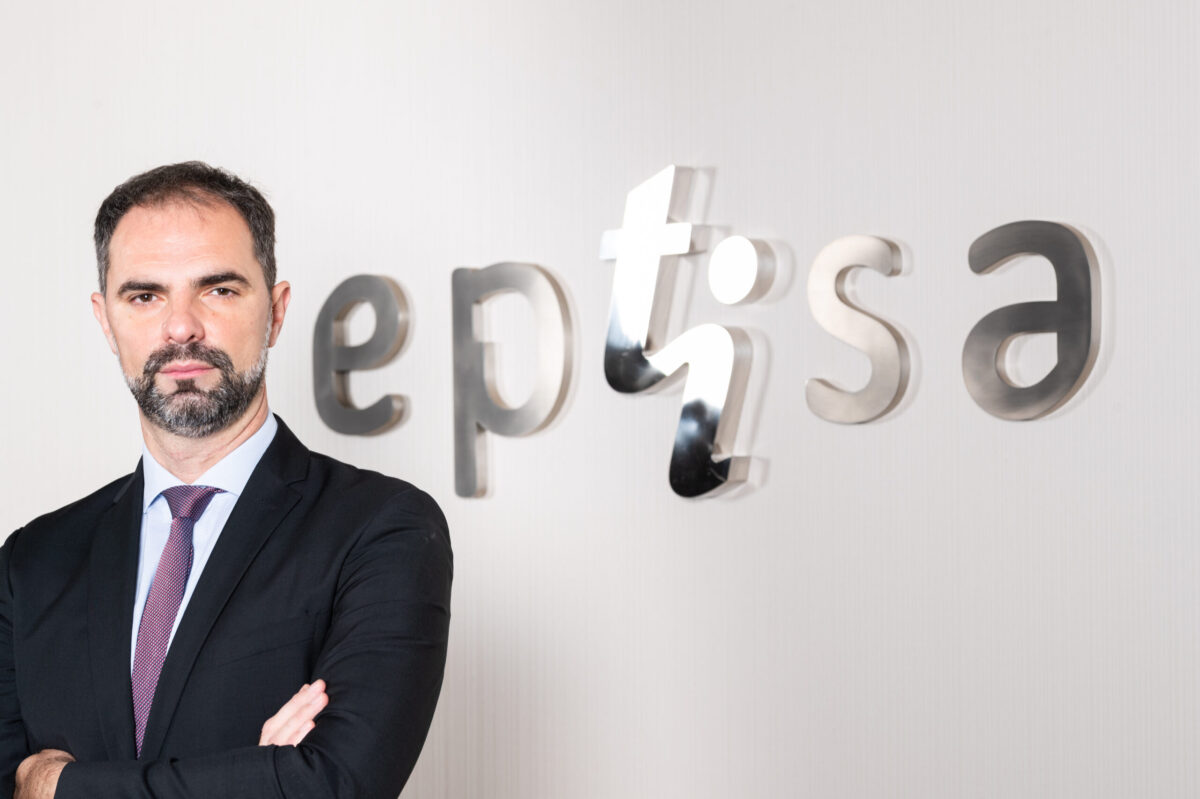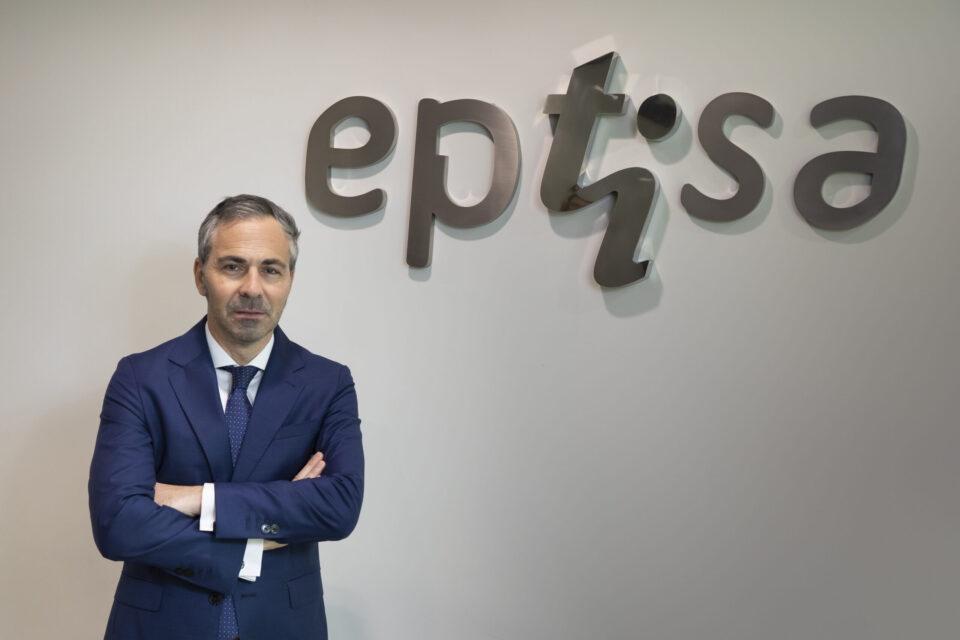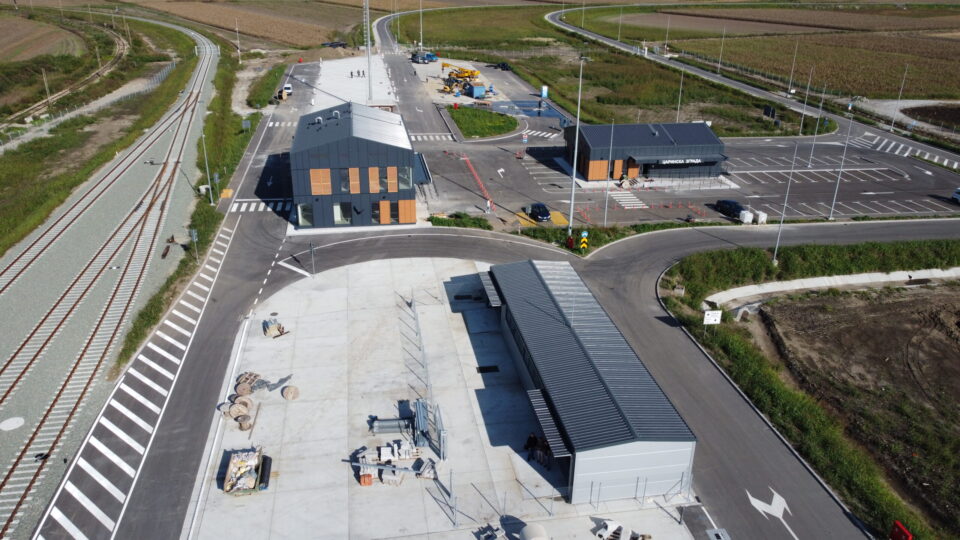Among the Spanish businesses with a high awareness of the possibilities of Serbian and the regional market, Eptisa stands tall Eptisa’s global CEO and the director of the Belgrade office share their enthusiasm for the surge in business activity of this major Spanish engineering company in Serbia. The company has made Belgrade its regional hub, and through exclusively local workforce, it promotes in its area of operation the opportunities made available by Serbia’s journey towards the EU.
Eptisa’s global CEO and the director of the Belgrade office share their enthusiasm for the surge in business activity of this major Spanish engineering company in Serbia. The company has made Belgrade its regional hub, and through exclusively local workforce, it promotes in its area of operation the opportunities made available by Serbia’s journey towards the EU.
What prompted Eptisa’s decision to come to Southeast Europe?
MG: Southeast Europe is a stone’s throw from the European market, sharing the vibrant culture and lifestyle of Spain. This similarity, coupled with a welcoming business environment, made our choice clear. In 1999, we began competing for EU-funded projects while simultaneously building our corporate presence in Serbia. Serbia has been our hub for Southeast Europe ever since. It’s worth highlighting that, by the time Croatia joined the EU in 2013, Eptisa was already deeply involved in the region, supporting institutions with EU grants and funding from international financial institutions (IFIs) during their journey toward EU membership.
After Croatia’s accession, Eptisa became even more deeply immersed in the local environment by creating Eptisa Adria, a company that operates with local resources, employs regional talent, and aims to boost our competitive edge. This local-first approach is something we’re keen on replicating across the region. Eptisa is on a mission to become the go-to technical service provider for major donors in the EU pre-accession phase of these countries.
AT: More than 20 years ago, we turned our focus to Southeast Europe (SEE), driven by the region’s dedication to joining the European Union. Recognizing the significant investments made in SEE regarding infrastructure enhancements and socio-economic reforms, we saw a wealth of project possibilities that aligned with both our expertise and the European trajectory of Serbia.
Eptisa’s journey in Serbia is a testament to the great possibilities for international businesses in the region
What are your current projects in the region, generally, and in Serbia, specifically?
AT: Our activity across the region is growing, with approximately 450 projects concluded or ongoing, with a notable 150 of those successfully executed in Serbia. We offer a broad spectrum of expertise from conventional engineering endeavors to progressive ventures in public policy, environmental solutions, and energy efficiency. Presently, we are engaged in about 100 dynamic projects in Southeast Europe. In Croatia, we’re overseeing the Rijeka port construction, in Bosnia, we’re tasked with designing a pivotal railway segment linking Sarajevo to Doboj, in Montenegro, our focus is on fortifying the water management sector’s capabilities, and in North Macedonia, we’re supervising the Kichevo sewerage network build.
In Serbia, our endeavors are diverse and impactful. We’re aiding the CFCU (Ministry of Finance) with a major waste-water facility in Kraljevo (Central Serbia), backed by the European Union Delegation. We’re nearing the completion of the EU’s Water Sector Services Reform initiative, which seeks to enhance water service efficiency and promote cost recovery adherence. Our collaboration with public utility Koridori Srbije is set to wrap up several infrastructure projects along the E75 and E80 highways. The Clean Serbia program marks our supervision of infrastructural upgrades in 14 municipalities, in close partnership with the Ministry of Construction, Transportation, and Infrastructure. What was the experience of your company when you arrived here?
What was the experience of your company when you arrived here?
AT: Eptisa’s journey in Serbia is a testament to the great possibilities for international businesses in the region. When we first set foot in Serbia back in March 2005, we were a modest office with merely two employees. Today, we have a core team of 60 dedicated full-time professionals, all locals, who are armed with the knowledge and experience accrued through Eptisa’s growth journey.
The local administration, with its streamlined procedures, laws, and supportive institutions, has played a pivotal role in our development, ensuring our path was free from red tape and unwarranted hurdles. In short, Eptisa’s story is a vivid illustration of how international companies can not only take root but also thrive in Serbia, thanks to an enabling environment that champions growth and innovation.
MG: Serbia is currently experiencing a significant surge in growth across various sectors. In light of this progress, companies like Eptisa are increasingly choosing Belgrade as their strategic hub, recognizing it as a critical location for engaging in business and showcasing expertise in their respective fields. This growth path is typical for nations advancing towards EU integration. Just three years ago, we had little interest in competing for projects funded by the national budget. Yet, in the past three years, these projects have gained appeal, characterized by expanding budgets that attract both international and local firms. The bidding process is now transparent, efficient, and inclusive, with clear criteria that welcome international participants.
Looking at the map of your activities worldwide, we see that you have a strong presence in the Iberian Peninsula, and then it is the Balkans, some other parts of Eastern Europe, the Middle East, Latin America, Africa, and the Far East. Are these the future economy champions? What are your criteria for deciding to embark upon a business venture in a new territory?
MG: The future of engineering and consulting is being redefined by new key trends: digital infrastructure, sustainable design, circular economy, decarbonization, resilient infrastructure, and smart cities. This shift is not just about venturing into new territories, but about harnessing cutting-edge technologies that steer modern businesses towards innovation. At Eptisa, we’re at the forefront of these changes, pinpointing territories ready to embrace and excel in these pioneering projects.
Serbia as well as Southeast Europe is home to top-notch talent
Are you happy with your business here? What about the business culture?
MG: Absolutely! We’re both grounded in our local roots and expansive in our global reach, creating a powerful blend of local insights and worldwide resources. Serbia as well as Southeast Europe is home to top-notch talent across various sectors, and our team in the Serbian office and offices in the neighbouring countries embodies this excellence.
In addition to the engineering work, you are engaged in some other activities as well, at least in Serbia. Eptisa SEE is currently implementing the EU in Serbia Communication Network (EUINFONET). Could you please tell us a few words about this project in general, and what it consists of in Serbia?
AT: We’re thrilled with EUINFONET and our dedicated team behind it. This intricate project aims to enhance awareness and comprehension of the EU; its core values, operations, institutions, policies, and the support it extends to Serbia. It highlights how this affects Serbian individuals and businesses, and sheds light on Serbia’s EU journey.
